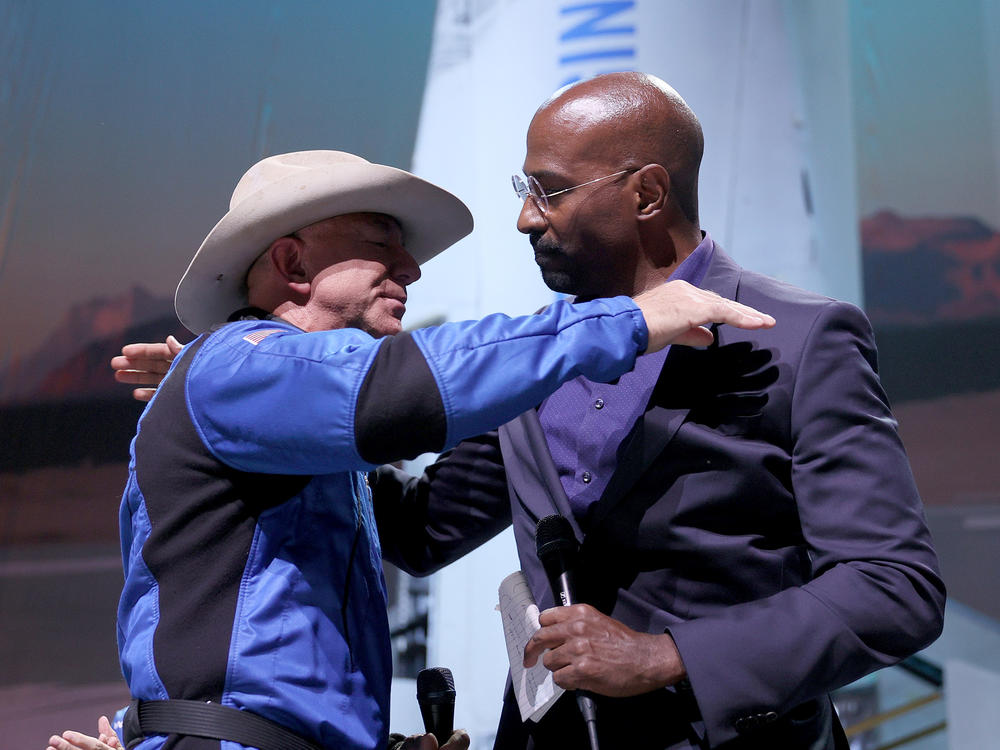Section Branding
Header Content
Bezos Landed, Thanked Amazon Workers And Shoppers For Paying, Gave Away $200 Million
Primary Content
Moments after returning from the edge of space, Jeff Bezos thanked the Blue Origin team that made his flight possible. He also thanked the Texas town of Van Horn, which hosted Tuesday's launch. And then he said this:
"I want to thank every Amazon employee and every Amazon customer, 'cause you guys paid for all this. ... Thank you from the bottom of my heart very much."
The internet responded with an incredulous gasp.
In a video, Bezos' comment appears earnest and elicits chuckles from the news-conference audience. But as the Earth's wealthiest person — a centibillionaire of extreme proportions, worth more than $200 billion — the man has been under an intense microscope for his attitudes toward America's gaping wealth divide.
Amazon now employs nearly 1.3 million workers, the majority of them scanning and packing goods in warehouses. In 2018, Amazon was among the first major corporations to raise its starting wage to $15 an hour, and its public relations team has fought the perception of the company as a low-wage employer. In 2020, the company reported that its median wage was $29,007 a year.
On Tuesday, after his 11-minute launch to the edge of space, Bezos gave $200 million in "courage and civility awards." The sum is split between chef José Andrés and CNN personality and social entrepreneur Van Jones to be given to charities and nonprofits of their choice.
"We need unifiers and not vilifiers," Bezos said, announcing the award. "It's easy to be courageous but also mean. Try being courageous and civil. Try being courageous and a unifier. That's harder and way better, and makes the world better."
Bezos stepped down as Amazon's CEO on July 5, exactly 27 years since he launched the company. But he remains Amazon's biggest shareholder, and his wealth is tied to the success of the company, now valued at $1.8 trillion. This is why Bezos has referred to Amazon as his "lottery ticket" that allowed him to invest in space exploration — about $1 billion a year.
Ever since Bezos bought The Washington Post and funded a 10,000-year clock inside a mountain, he has faced calls to step up philanthropy more in line with his wealth.
Last year, Bezos and ex-wife MacKenzie Scott topped the list of U.S. charity donors. Bezos has put some money toward causes such as homelessness, education and climate change. Last week, he gave $200 million to the Smithsonian Institution's National Air and Space Museum.
In an interview Monday with CNN, Bezos addressed critics who argue his wealth and attention would serve better if directed toward more urgent needs on our planet.
"We have to do both," Bezos said. "We have lots of problems in the here and now on Earth, and we need to work on those. And we always need to look to the future," adding that perhaps "amazing things" next generations might do in space "will solve problems here on Earth."
Editor's note: Amazon is among NPR's financial supporters.
Copyright 2021 NPR. To see more, visit https://www.npr.org.

